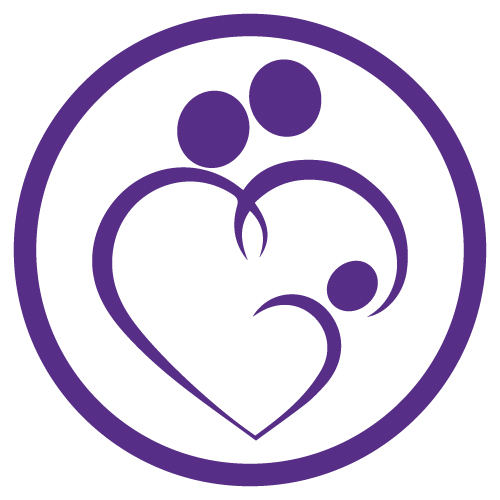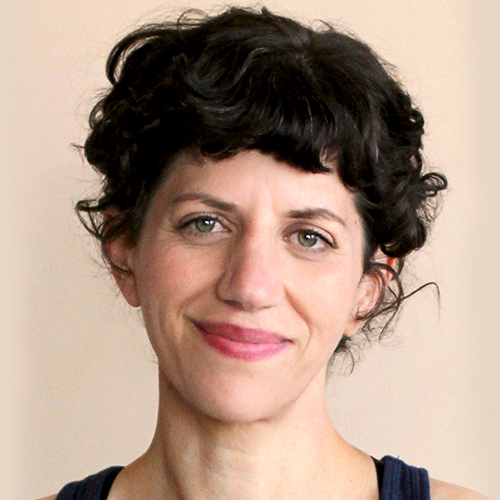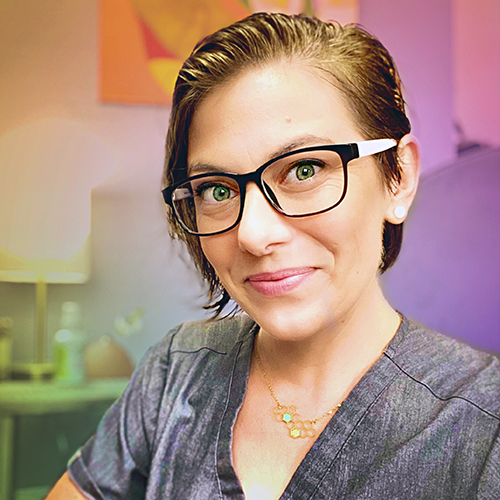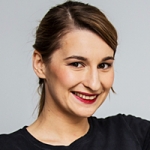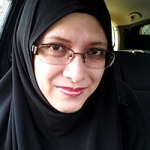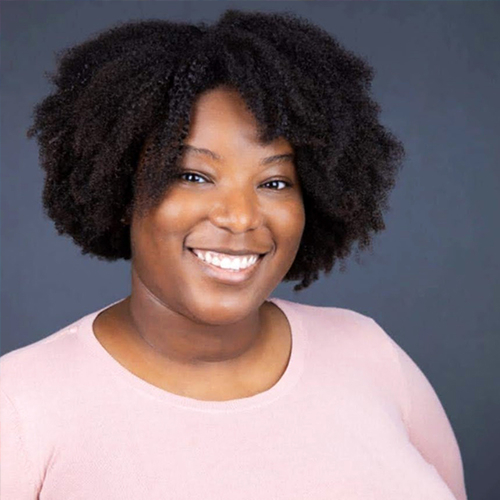
Rethinking the Definition of Breast/Chestfeeding: Where Does Pumping Fit In?

Nichelle Clark is an International Board Certified Lactation Consultant (IBCLC), wife, and mother of one residing in Chesapeake, Virginia. She is the owner of SonShine & Rainbows Lactation Services. Born and raised in Upper Marlboro, MD, Nichelle joined the United States Navy in 2010 and served honorably for 7.5 years. In 2020, she founded Black Breastfeeding 365, an organization that seeks to bridge the gap between Black Parents and the Lactation Professionals who serve them. When she’s not spending time with her husband and 4 year old son, she serves as a United States Lactation Consultant Association (USLCA) Advisory Board Member and Clinical Lactation Journal Social Media Editor. In her spare time, she admins multiple online support groups for People of Color, providing breastfeeding support and lactation education to her community. As an exclusive pumping mom herself, Nichelle is a champion for breastfeeding parents to write their own rules and breastfeed their way.
The first breast pump is credited to being invented/patented in 1854 by O. H. Needham. Since then, the pump industry has exploded, making breast pumps more accessible throughout the Western World. While technology has transitioned with the times, the bias that exists within lactation has not. Clinicians are still drawing hard lines on what the “true” definition of breast/chestfeeding is. In this presentation, we’ll dive into why there’s still a debate and answer the age-old question. Spoiler alert: Pumping is breastfeeding and lactation professionals have a responsibility to support parents to meet their pumping goals.
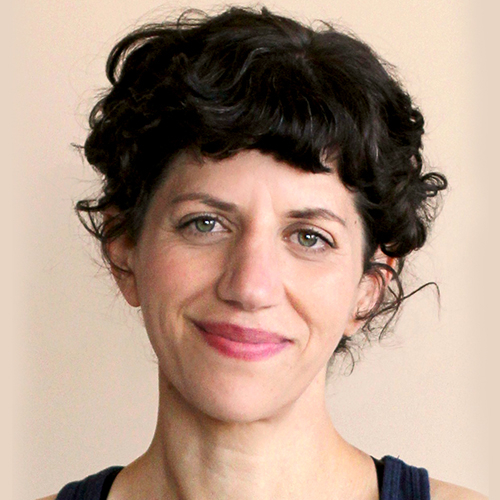
Returning to Sex Postpartum: Expectation, Preparation, Treatments for Pain and Dysfunction

Sonia is an occupational therapist specializing in pelvic floor therapy with a focus on the perinatal population.
In her practice, she uses awareness training, targeted exercise, breath work, yoga, manual therapy and lifestyle modification to help her clients find relief from conditions such as pelvic girdle pain, prolapse, dyspareunia, incontinence, constipation, diastasis recti and general deconditioning connected to pregnancy and postpartum. Sonia is skilled in helping her clients navigate the psychological and social impact that pelvic floor issues have on relationships and day to day life. In addition to her work as a pelvic floor therapist, Sonia teaches pre/postnatal yoga classes and leads new parent support groups. She is also a part of the continuing education program at Ancient Song Doula Collective and teaches workshops on the pelvic floor for Doulas and pregnant and postpartum people.
Sonia graduated from SUNY Downstate with a Master’s of Science in Occupational Therapy and received a Bachelor of the Arts in Dance from Oberlin College. Sonia trained in pelvic floor rehabilitation with Herman & Wallace Institute and Lindsey Vestal of the Functional Pelvis.
Sonia lives in Brooklyn, New York with her husband and two children.
Pain with sex and sexual activity postpartum is common. This can have a profound impact on quality of life and relationships during a period of time when birthing people are already managing seismic changes to both identity and intimate relationships. Birthing people deserve education around what to expect, how to prepare and how to address any discomfort and pain with return to sex postpartum. Too many providers are not given knowledge, tools and strategies to support their patients with resuming this important activity of daily living. In this interactive and embodied presentation, I will share how to talk about the return to sexual activity with your patients, what preparation may be helpful, and strategies for addressing and treating different categories of sexual pain.
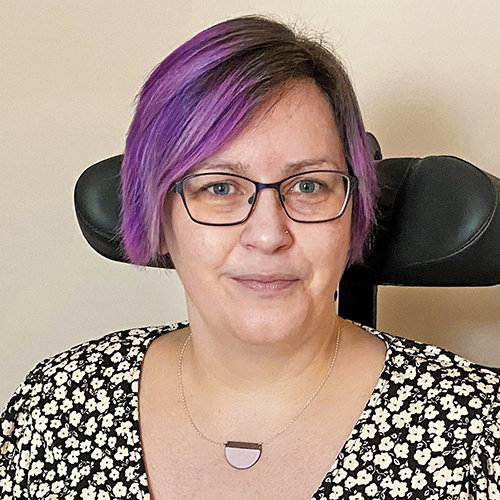
Reviewing the Research on Breastfeeding in Public: Challenges, Solutions and Impact

Aimee Grant is a Senior Lecturer and Wellcome Trust Career Development Fellow at Swansea University Centre for Lactation, Infant Feeding and Translation. She has researched marginalised pregnancy and early motherhood for the past decade, including those living in poverty, stigmatised locations and Disabled women. Aimee's current research is an 8 year longitudinal study using visual methods to understand Autistic experiences "from menstruation to menopause". She is the author of two Documentary Analysis texts (Routledge, 2019; Policy Press, 2022), and is currently writing The Autism Friendly Guide to Pregnancy (and the fourth trimester).
Many parents in Global North countries identify breastfeeding outside of the home as a particular challenge, and this can lead to stopping breastfeeding earlier than intended. However, there are often legal protections available. In order to better understand this complicated landscape, I will present a summary of the 71 research studies published on this between 2007-2021. Current barriers to mothers being able to breastfeed in public spaces will be described in relation to the legal system, structural inequality and intersectionality, knowledge leading to incorrect beliefs among the public, and a hostile social environment. Within this context it is completely rational for parents to feel a range of negative responses, which lead to them feeling unsafe to breastfeed. Building on this evidence, I present a range of ways in which you may be able to have a positive impact on the environment around the mothers you support.
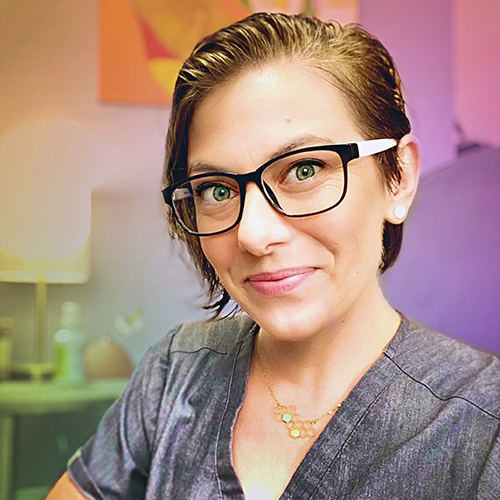

Bryna is a lactation consultant, mentor, educator, and birth doula in the Pacific Northwestern United States. They are active in their community as an advocate for mutual aid, reproductive justice, and reduction in barriers to care. They also own and manage an inclusive private practice. As a member of both Queer and Neurodivergent communities, offering inclusive care on every level is very important to Bryna. Their vision is to offer information and tools to providers to build a community of comprehensive, concordant, and individualized care for all families in the perinatal period.
Topic: Breastfeeding With Ease: The Impact of Infant Reflex Emergence and Integration - [View Abstract]
Topic: Rhythmic Movement for Breastfeeding Function - [View Abstract]
Disorganized or absent infant reflexes can create challenges for breastfeeding/chestfeeding. This presentation takes a close look at the role of movement in the integration of disorganized infant reflexes and the use of rhythmic movement as a method for overcoming infant feeding challenges. This talk also covers socio-cultural impacts of trauma, lack of opportunity for movement, and modern care system barriers to reflex integration.

View Details / Enroll
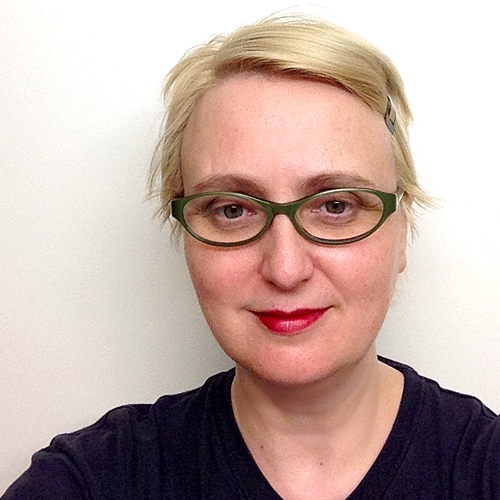
Rummaging in the Tool Bag: Examples of Approaches Borrowed from Other Disciplines, Applied in Lactation Support Practice

After working in the UK and France, lecturing and then in film and TV production, Annabelle became a breastfeeding support volunteer in France 10 years ago, after the birth of her first child. She then worked in lactation support in the UK NHS in London, whilst also volunteering for the National Childbirth Trust (NCT). Since 2016, she was the Infant Feeding Coordinator at Suffolk County Council Health and Children’s Centres, and had a small private practice. In her county council role, Annabelle took the Health and Children’s Centre staff through Stage 1 of UNICEF Baby Friendly Accreditation, and left the department well prepared for Stage 2. Whilst there, she oversaw an increase in breastfeeding rates, and contributed to Public Health initiatives to promote breastfeeding, including help to improve breastfeeding knowledge amongst doctors. Annabelle qualified as an IBCLC, lactation consultant in 2017. In October 2018, Annabelle took up her current post as lactation consultant for the 48th medical group at RAF/USAF Lakenheath.
Rummaging in the tool bag: how we can borrow from other disciplines, and enhance our care.
As infant feeding specialists, we should be open to discovering new tools that renew our practice. Historically, we’ve incorporated elements from elsewhere, e.g. Active Listening (Rogers and Farson, 1957), borrowed from psychology and conflict resolution.
Changes to the UK support landscape, mean that parents may not access traditional breastfeeding peer support, and instead see health staff. A diversity of background, can mean staff bring additional skills that then complement those acquired under the UNICEF Baby Friendly standard.
For specialist professionals, such as IBCLCs, some of these tools can also complement practice, and can be used to great effect.
This presentation proposes to look at some elements we can borrow that enhance our clinical practice. We will review aspects of Active Listening, and then move on to examine elements in the Signs of Safety model and Solihull Approach. These are just two examples of widely practiced approaches in the UK, and there are many other fields to be borrowed from.

View Details / Enroll
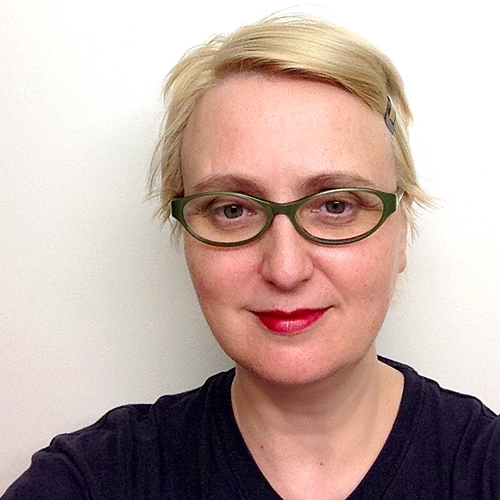
View Details / Enroll
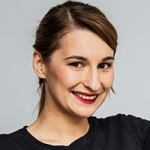
Rusty Pipe Syndrome: A Case Report From Poland

Anna has been working as a midwife since 2009. From the very beginning of her studies she has been fascinated with breastfeeding. During her studies for her Bachelor's and Master's degrees in Midwifery, her main area of interest was promotion and support for breastfeeding among women. Anna's interest in breastfeeding turned into a passion that led her to pursue the Polish Certification of Lactation Consultant and she is working toward certification as an IBCLC. She opened a private practice and a support group for local women in Krakow (cracko). Anna’s Interest and passion for lactation and breastfeeding have deepened during her current PhD studies. She is a PhD candidate in 2018 at University Medical College and is the coordinator of the Krakow Human Milk Bank.
Her scientific area of expertise: change in milk composition (macronutrients), human microbiota during pregnancy, lactation as well as tandem breastfeeding. Her research is carried out in the Department of Obstetrics and Perinatology. Anna is the author of many lectures and workshops for students of midwifery and medicine in area of breastfeeding, lactation and the variation of composition of human milk. Since 2016 she has been popularizing the science of human lactation in Poland and she is always finding new ways to promote and support breastfeeding women. In her spare time she practices meditation, yin yoga and is learning how to dance rock and roll.
Topic: Rusty Pipe Syndrome: A Case Report From Poland - [View Abstract]
Bloody nipple discharge is an unusual experience during lactation for both the mother and her attending physicians. Painless bleeding from the breasts in the early post-partum period can be a physiological condition called a rusty pipe syndrome. This report describes the case of bilateral bloody nipple discharge that started after caesarean section and subsequently ceased within a few days.
Natural breastfeeding is the best way of nourishing newborns and infants. The process of breast milk production starts as early as between weeks 16 and 22 of pregnancy and colostrum can appear from the nipple in the following weeks. Milk containing blood can be a cause of concern for the mother and her physician. The reasons can be various; however not all of them would be caused by bleeding from the glandular tissue.

View Details / Enroll
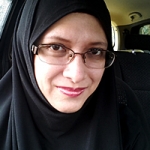
Scaling Up Skills and Reliability of Breastfeeding Peer Counselors - 7 Years of Malaysian Experience

Nadrah Arfizah Arifin (MBBS, MPH, IBCLC) is a medical professional in public health and a lactation consultant who obtained her medical degree from University of Malaya, Kuala Lumpur in 2004. Her involvement in breastfeeding support and advocacy started in 2007 as a local breastfeeding supporter at her workplace. She further involved in community-based breastfeeding support voluntarily by joining the Malaysian Breastfeeding Peer Counselor Association (MBfPCA) in 2010. She became the first breastfeeding peer counsellor of MBfPCA who successfully upgraded to become the program trainer in 2011 to 2012, thus making the framework for Train of Trainer program in MBfPCA in effort to further grow the network. She is currently the President of MBfPCA and together with other Core Trainers, they plan for sustainability of breastfeeding support by peer counsellors for Malaysian community. While doing her Doctoral degree in Public Health (DrPH), she is also working on few projects in MBfPCA particularly in capacity building of breastfeeding peer counselors with the interest of maintaining its integrity, reliability and relevancy through monitoring and evaluation of community breastfeeding support program.
The roles of peer counselors (PC) in breastfeeding support is important to reach mothers and families in community as they would bridge the gaps within the warm chain of breastfeeding support. However, challenges has overcome in many forms, especially their reliability in providing breastfeeding support skills and knowledge. Malaysian Breastfeeding Peer Counselors (MBfPC) program has started in 2010 to enhance breastfeeding support for Malaysian community. Its training syllabus were adapted and modulated to be culturally acceptable. More than 500 PCs were trained.
The original syllabus was continuously being revised prior to each training since Malaysia is multicultural with great diversity, with few adaptations of new tools to enhance the understanding among the trainees whom majority are not health personnel. MBfPC Association (MBfPCA) is responsible to reliability queries by other parties, thus overseen the needs for MBfPC training reform. Three training levels were introduced in 2016; entrance, advanced, and train-of-trainers; to increase reliability of certified PC, even though the sustainability of the network is yet to be observed. The mechanisms used to select, train and certify the PCs had strengthened the roles and functional relevancy of MBfPCA existence in Malaysian scenario. This presentation will share the challenges and framework of capacity building among PCs to function as breastfeeding peer supporters in Malaysian context.

View Details / Enroll
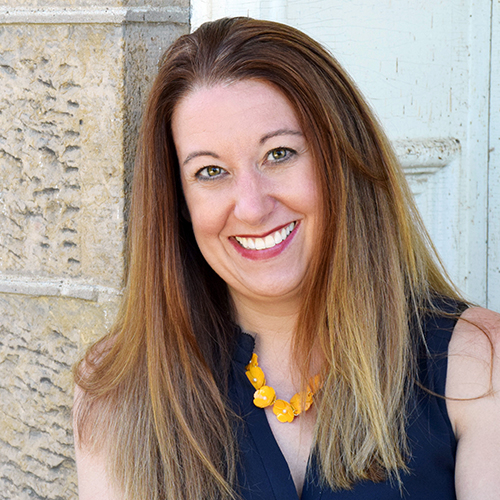
Scent-Sational Connections: The Role of Olfaction in Development

Gretchen Becker Crabb is an Occupational Therapist, Licensed Professional Counselor, and Endorsed Infant Mental Health Therapist. She is also a Certified Lactation Counselor, La Leche League Leader, and Brazleton Newborn Observation (NBO) trainer.
Gretchen’s passion is rooted in fostering lifelong relationships and connection through co-regulation in pregnancy and beyond. Her unique approach to lactation support and therapy is rooted in culturally attuned sensory, somatic, and trauma-informed mental health techniques.
Gretchen owns and operates a private practice in Madison, Wisconsin. For 21 years, she has provided developmental, trauma, feeding, and attachment support for tiny humans and their caregivers in birth to three, preschool, private practice, and peer group settings. Gretchen is an international speaker, reflective supervisor, and infant mental health consultant. In these roles, she offers compassionate, experiential, and reflective holding spaces for professionals. She is a proud United States Air Force spouse and mother of three boys.
Topic: Infant Mental Health: What Does It Look Like in Practice? - [View Abstract]
Topic: Scent-Sational Connections: The Role of Olfaction in Development - [View Abstract]
Topic: Sensory Processing and Breast/Bodyfeeding: Using Co-Regulation to Support the Feeding Relationship - [View Abstract]
Topic: Vestibular Processing: Using the Sixth Sense to Support Lactation and Parent/Infant Relationships - [View Abstract]
Though so obvious, the sense of smell is quite integral to well-being and human connection. As the loss of smell has been highlighted as one of the main symptoms of COVID, it invites a deeper understanding of the functional impacts of olfactory differences in children and caregivers. In this presentation, we will learn about the cultural history and neurological basis of olfaction. We will explore how smell plays a role in feeding, interpersonal relationships, and safety as well as olfactory strategies to promote physical health and co-regulation.
IMPORTANT: In this presentation we will do experiential work, so please have a journal, the following scents and food available:
One Citrus Scent (e.g. lemon, lime, orange)
One Woodsy/Earthy Scent (e.g. leaves, rocks, soil)
One article of clothing worn by someone you are close to (e.g. spouse, child, close friend, parent)
Carrot or other raw vegetable to eat
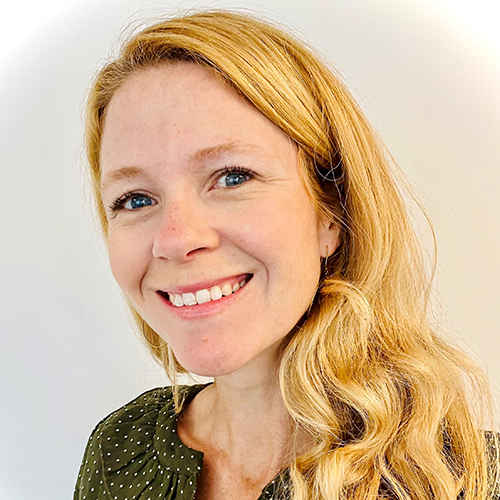
Seeing the Bigger Picture: Finding Clues in Our Breastfeeding Clients' Surroundings

Johanna Sargeant is an International Board Certified Lactation Consultant, teacher and writer based in Zurich, Switzerland. She is passionate about utilising her background in education, biological science, psychology and language to empower parents with empathetic support and evidence-based information through her private practice, Milk and Motherhood.
Originally from Australia, Johanna provides much-needed English-speaking support to many thousands of parents throughout Switzerland and across Europe, and has recently been writing new education modules for the European Society of Paediatric Research and the European Society of Neonatology. She has taught at the University of Zurich, has spoken as a panelist for the WHO's Baby Friendly Hospital Initiative congress in Geneva, has been an expert speaker and facilitator for Google, and has presented at a wide variety of international conferences. The complexities of her personal feeding experiences fuels her passion for providing knowledgeable, guilt-free infant feeding support globally.
Topic: Mastering Lactation Conversations: Creating Successful and Achievable Care Plans - [View Abstract]
Topic: Seeing the Bigger Picture: Finding Clues in Our Breastfeeding Clients' Surroundings - [View Abstract]
Topic: When Evidence and Empathy Aren't Enough: Changing Your Lactation Practice to Boost Client Success - [View Abstract]
Home visits play an integral role in the practice of many Lactation Consultants around the world. There are undoubtedly many benefits to meeting our clients in their own space, and one of these is that we can immediately garner a wealth of valuable information within a very short period of time. Along with learning a variety of quick and easy ways to stealthily, respectfully gather vital information about important feeding practicalities, this presentation will explore mental health, cultural humility and personal safety. We will explore the array of clues and red flags that may unknowingly surround you with regard to the clients' mental health and their overall safety. Additionally, as someone who works with clientele from over 75 different countries, Johanna shares what she has learned regarding the variations and commonalities between cultures when it comes to performing home visits, and which behaviours we can adopt to ensure continued humility and respect.
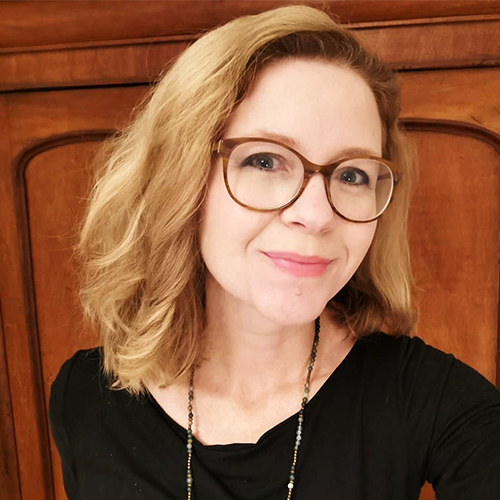
View Details / Enroll


Joy MacTavish, MA, IBCLC, RLC is an International Board Certified Lactation Consultant and certified Holistic Sleep Coach focusing on the intersections of infant feeding, sleep, and family well-being. Through her business, Sound Beginnings, she provides compassionate and evidence-based support to families in the greater Seattle area, and virtually everywhere else. She entered the perinatal field in 2007 as birth and postpartum doula, and childbirth and parenting educator. Joy holds a Master of Arts in Cultural Studies, graduate certificate in Gender, Women and Sexuality Studies, and two Bachelors degrees from the University of Washington. She enjoys combining her academic background, analytical skills, and passion for social justice into her personal and professional endeavors. Joy serves as an Advisory Committee Member and guest speaker for the GOLD Lactation Academy. When not working or learning, she can be found homeschooling, building LEGO with her children, or dreaming up her next big adventure.
Topic: Full-Term Breastfeeding/Chestfeeding: Benefits, Considerations, and Ways to Offer Support - [View Abstract]
Topic: Mindful Breastfeeding: How Lactation Professionals Can Support Calm and Connection - [View Abstract]
Topic: Sending Reports: What’s in it for IBCLCs? - [View Abstract]
Topic: Supporting Clients Facing Fertility Treatment - [View Abstract]
Topic: The Intersection Between Lactation, Sleep, and Family Well-Being - [View Abstract]
Topic: Weaning: Supporting Families Stopping Lactation and/or Ending Their Breastfeeding/Chestfeeding Relationship - [View Abstract]
Most lactation professionals love client interactions, but only send reports to health care providers out of a sense of duty. But writing and sending reports to our client’s health care providers can be more just an administrative task. Yes, it complies with IBLCE’s Code of Ethics to “Principle 4: Report accurately and completely to other members of the healthcare team” but it can also increase collaboration, improve client outcomes, and grow your practice.
This presentation seeks to reframe the process of writing and sending reports from a dreaded task to a clinical, ethical, and holistic way of supporting our clients while positively positioning ourselves as allied health professionals. Beyond the ethics (yes or no) and practicalities ("S.O.A.P." or not), a report to a health care provider is a source of communication about the consultation as well as marketing about your clinical skill, role in the client’s lactation experience, and lactation practice. With a combination of the why and how, this presentation outlines the ways in which reports to health care providers can be beneficial to the client, the health care provider, and the IBCLC, as well as devoting some time to specific strategies that lactation consultants can implement to streamline the process of sending reports so that we can get to the next client.

View Details / Enroll



